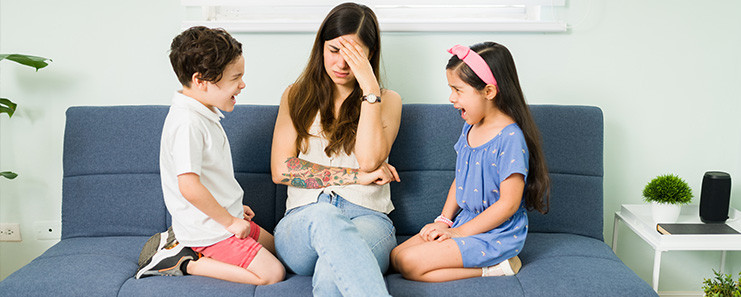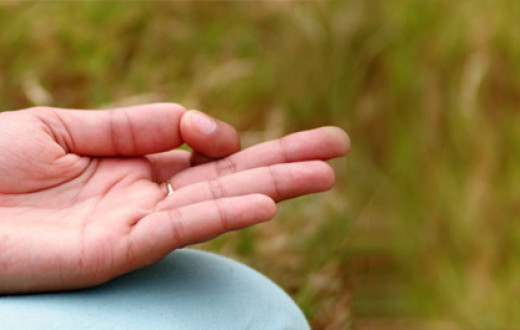“Kids don’t do what you say. They do what they see. How you live your life is their example.” -Tim Ferriss
Although we understand that kids go through several phases of personality development while growing up, the phase where they do just the opposite of what we say is the toughest. And it does come at some point. Like, when you ask them to sleep, they argue to stay up longer or when you suggest they study, they get involved in other things, and so on. There could be many reasons for kids behaving as such. This could be their way of expressing emotions, confusion, or simply twisting the power game parents mostly play with them. In any case, there is a need for a definite solution.

So why do kids do the opposite of whatever we say and how to make them listen and obey us?
7 Reasons Kids Do the Opposite of What you Say
Testing Patience
Sometimes kids want to test your patience, and they willingly do the opposite of what you say. They may have no wrong intention behind it but only wish to see when you would give up on their weird behavior.
Reciprocating
Kids are great imitators. In fact, their grasp of information (positive or negative) is much faster than adults. How you have acted with others around you, would make them reciprocate to you in a similar way. If you display anger, ego, etc. to others around you, they imitate the same. Doing just the opposite is a way they express their negative emotions.
Seeking attention
As parents, we shoulder many responsibilities and often forget to pay undivided attention to our younger ones. This becomes one of the important factors of kids doing the opposite of what we say, to get more attention from people around. Attention deficiency syndrome (ADS) is a common concern in young kids. Also, when you give into their attitude of screaming and crying for the first time, they make it a reason to get your attention.

Curiosity
Kids sometimes need an answer to everything. Their questions begin with what, why, how, etc., and they don’t give up until they get their answers. Doing the opposite of what you say is one way to fetch answers to their curious minds.
Because they can
As adults, we do not confront kids when they do the opposite of whatever we say. In fact, we find it adorable when kids use power play. This grows on them and makes them believe they can have their way all the time, making them do the opposite of what we say.
Developing a sense of Independence
Growing up, kids believe they are getting smarter and try to become independent in doing their work. This, in turn, brings a change in their attitude and they put their minds into everything they do i.e. they make their own decisions, irrespective of what you want them to do, and can be many times the opposite of what you want.
Oppositional Defiant Disorder(ODD)
When kids display frequent bouts of anger, irritability, defiance, arguing, and such behavior, they need help. It makes them execute authority in dealing with people and leads them to do the opposite of what you say. Kids with ODD could be very stubborn and difficult to deal with and require a lot of patience to manage. Therapy, medication, and changes in your parenting technique are efficient ways to manage ODD kids.
What Can You Do?
Unless it’s just a phase where kids love doing the opposite of what you say only to get more attention, here is what you can do.
Let them explore
Kids love to explore life their way and learn from their mistakes. Sometimes, letting them be is a great way parents can bring a positive change in them. On the other hand, always teaching them a lesson or being angry at them could make them stubborn.

Behave
There is always an eye that sees how you behave, talk, and respond to others around you. Know that your kids are always watching you. To teach them good behavior, you should reflect the same values in your daily life.

Make them understand
It isn’t actually tough to make a child understand the result of their actions. Have a one-to-one talk, and tell them stories of how their behavior could impact them and others around them. Spend time with them and keep them out of the virtual world to make them understand human values. You will soon see a positive change in their attitude.
Have patience
Patience is the key to handling rebellious kids and teenagers. They have a lot going on in terms of exploring the ways of society, hormonal shifts, and recognizing behavior patterns by seeing action-result strategies. You must stay calm and deal with your kids patiently when they do the opposite of what you say.
Listen to them
Kids have so many thoughts going on. It is interesting to know that kids actually evaluate situations in many ways and as a parent it’s important we listen to them. When they express themselves, not only do we understand the reasons for their behavior but it also makes them feel they can really open up and talk to us.
Do not respond at times
When kids constantly become demanding and rude, it’s best not to respond to them. Responding to them gives them control over our actions and they feel they can continue being in authority. Sometimes, silence is the best treatment for a moody and stubborn kid. It’s wrong to glorify them and their actions.
“I feel it is very important to teach our children and our people how they should handle their negative feelings and emotions such as anger, jealousy, and hatred.”
-Gurudev Sri Sri Ravi Shankar
Positive Parenting
Parenting could be a challenging experience because it’s a big responsibility to build a child’s foundation. However, it is what makes life so much worth living. Techniques of positive parenting could shape a kid’s mind early on and make them better human beings. Try to:
Praise/Reward your kid if they behave well for a day.
Trust them to do something on their own.
Indulge them in any kind of social work, despite the magnitude (like feeding a dog, greeting and donating to beggars, etc.)
Get the work done without exerting power over them ( use ‘please’, ‘sorry’, and ‘thank you’ as often as possible to imbibe humility in them)

Forgive them and hug them when they have episodes of aggression while making repetitive efforts to put them into a routine of self-discipline.
Keep them in the company of elders and youngsters and bridge the generation gap (it gives them an idea of emotional differences and makes them cope with different situations in the future).
Inculcate in them the faith to believe in the goodness of people. (But balance it with caution for people who do wrong).
Involve them in your daily activities like yoga, meditation, prayers, singing, or dance. It gives them a sense of belongingness while imprinting culture in their minds. It also acts as a therapy for aggressive behavior and helps calm them.
“Education is not just information, it is where a child grows up in the value of non-violence, multiculturalism with a sense of belongingness.”
-Gurudev Sri Sri Ravi Shankar
How to be a good parent? Join us in our know your child workshop, and bridge the gap between you and your kid while establishing a strong bond.


















